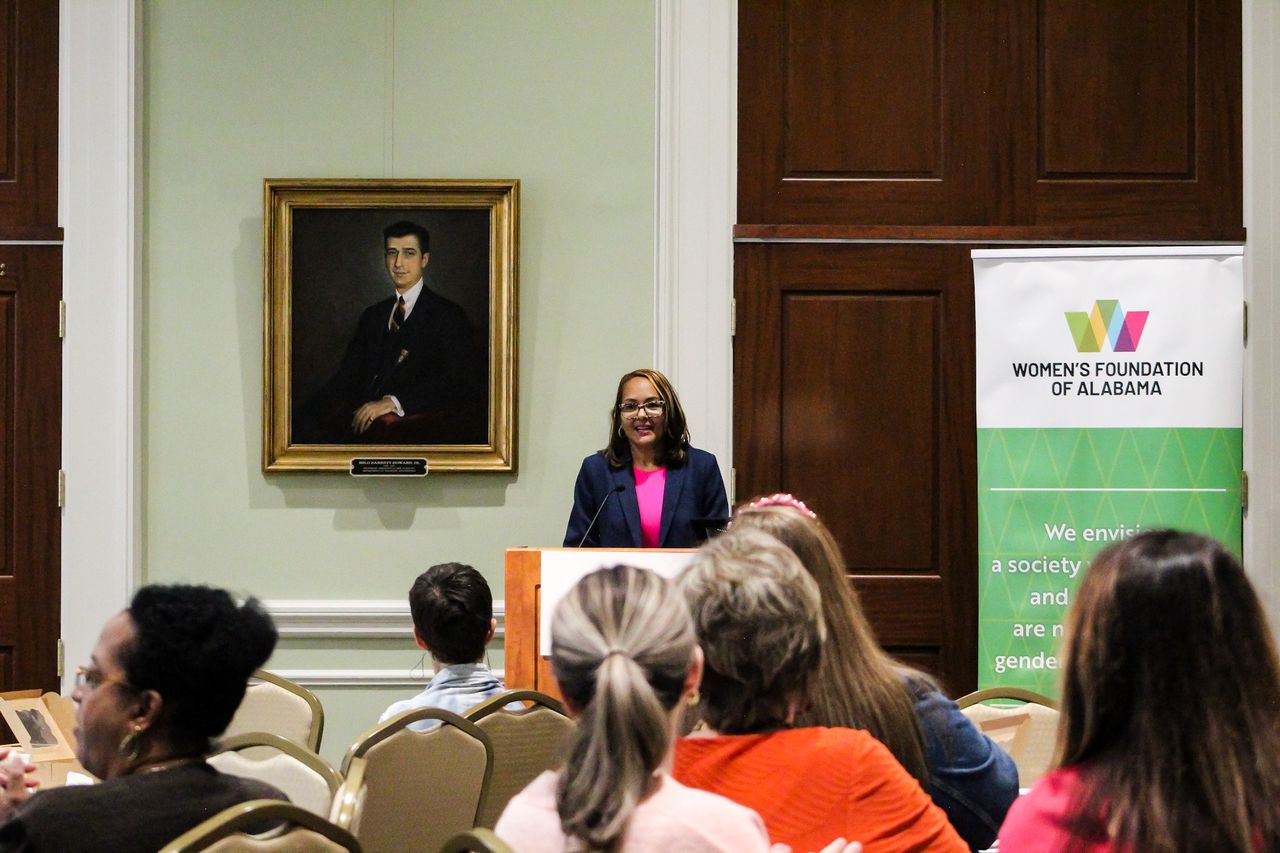Alabama lawmakers state support for child tax credit for parents, employers
The Alabama Women’s Foundation celebrated bills aimed at banning salary history and establishing child tax credits at their fifth annual Capitol Heels Advocacy Day on Thursday morning.
In addition to hosting a panel focused on women’s economic development, the group shared new bills in the 2023 legislative session that they’ve pushed for, including HB331 by Rep. Adline Clarke, D-Mobile, which would ban employers from asking about salary history on job applications.
House Minority Leader Rep. Anthony Daniels, D-Huntsville, added that he plans to file a bill today establishing a state child care tax credit.
“We have a group of women working who are not just talking, but they are delivering results on issues that impact women, which means they’re changing the trajectory and the life of everyone in the state of Alabama,” said Tiffany Cole Johnson, an attorney and a member of the Women’s Foundation’s board.
Clarke’s legislation follows the findings of the Work Force and Wage Gap Task Force, which was authorized last legislative session and met throughout the fall. The task force focused on three areas for policy recommendations:
- Strengthening equal pay protections
- Investing in child care
- Streamlining and strengthening the workforce development pipeline for women and girls
HB331 would amend the Clarke-Figures Equal Pay Act by prohibiting employers to seek prior salary information, use it in the hiring process to determine compensation or retaliate against an employee for withholding such information.
Per current law, job-seekers can choose not to answer previous salary questions, but nothing prohibits an employer from asking.
Advocates also expressed the need to shift the idea of child care from a “women’s issue” to a “workforce” issue. In 2021, Alabama parents missed work for child care-related reasons at the highest rate in the nation.
“One of the things that I want to let you all know I’m going to support and try to continue to do as part of workforce development is making sure that we have a tax credit for child care,” Lt. Gov. Will Ainsworth said.
The bill is not publicly available at the time of publishing, but Daniels, who is sponsoring it, said it will give companies options to alleviate the expenses of child care for their employees in various ways.
Daniels also said the bill will establish ways to keep child care centers high-quality.
“These are investments that I think we should have been making a long time ago, but we’ve learned. We’ve learned from other states that are doing it and we want to do it better,” Daniels said “So this is a great starting point.”
Read more about child care in Alabama by Sarah Swetlik:
Childcare experts suggest expanded subsidies, tax credits, as Alabama parents cite struggles
How much of your paycheck goes to child care? Alabama child care, day care costs are increasing
See the 14 Alabama counties where child care is most expensive
Other lawmakers and Alabama officials, including House Speaker Rep. Nathaniel Ledbetter, a Republican from Rainsville, said women have played important roles in their lives and they were excited to contribute to the work of the Women’s Foundation.
Ledbetter said he is working to get more women to chair committees in the House of Representatives.
He also said that he believed the House had added more women duing his time in office, and that “my wife tells me that’s a good thing.”
During the group’s panel discussion on improving economic opportunities for women in Alabama, however, policy consultant Susan Kennedy corrected Ledbetter. The number of Alabama female state lawmakers did not increase.
“We heard this morning that we’ve got more women than ever, and that’s not true,” Kennedy said.
In the 2022 election, some women were elected as freshmen, but the total number of women in the House stayed the same.
The Senate went from five female representatives to four.
“We actually have some women that are sort of louder, right? Or more visible,” Kennedy said, adding that women are holding more positions of leadership in committees and caucuses that have been traditionally male-dominated.
“I think it feels like, to them, there’s more women, but there actually aren’t more women,” she said, as the crowd laughed.
In the last election, Alabama did elect its first female U.S. senator, Katie Britt.
